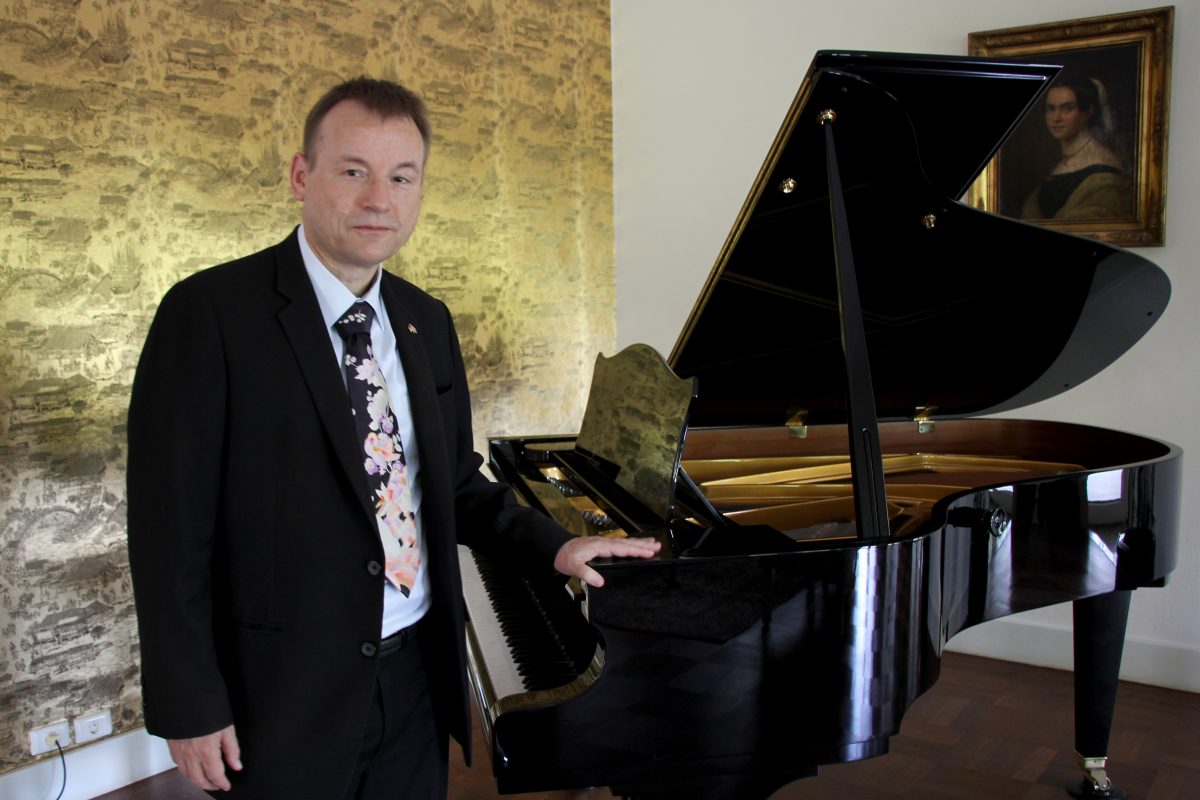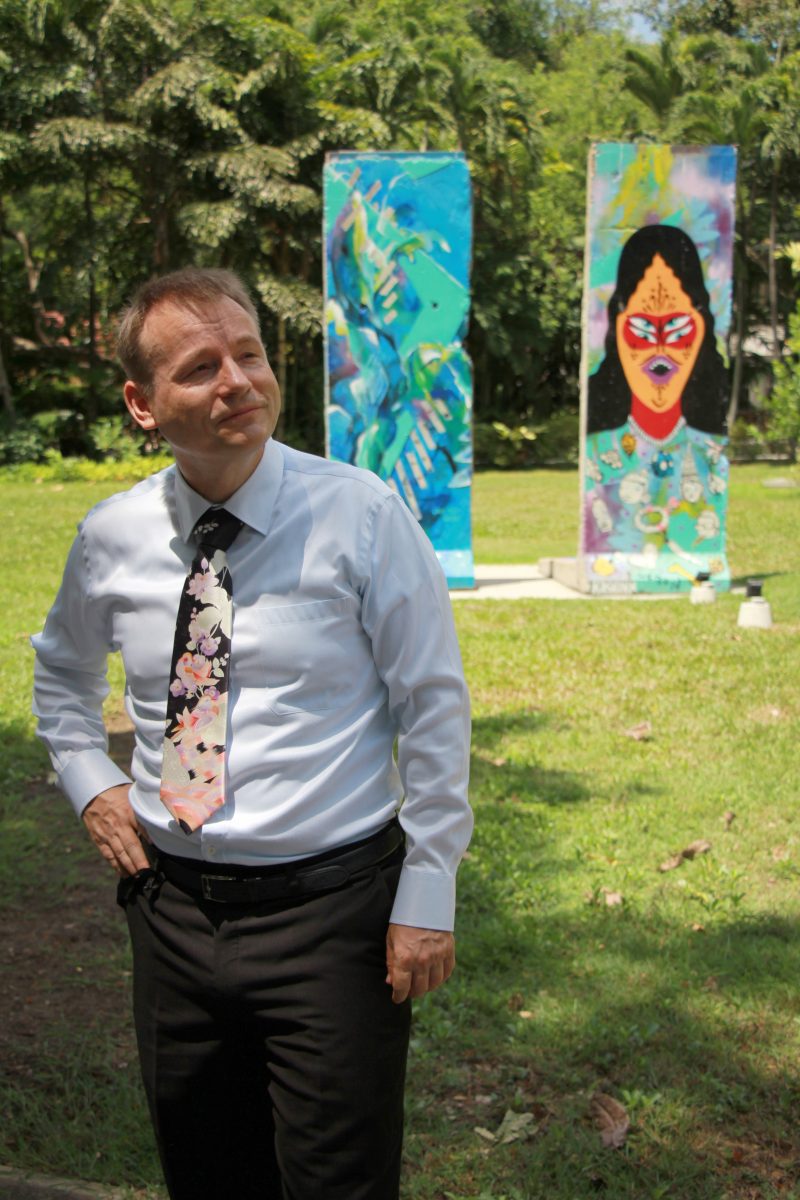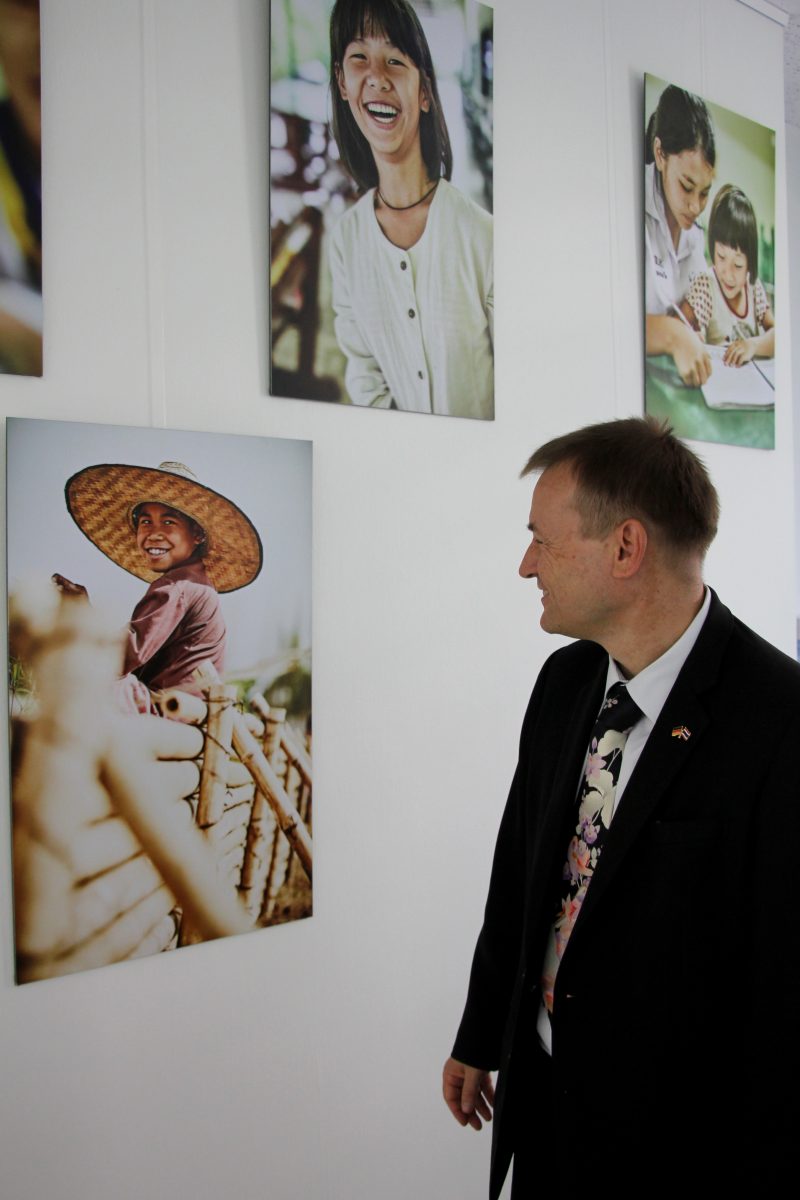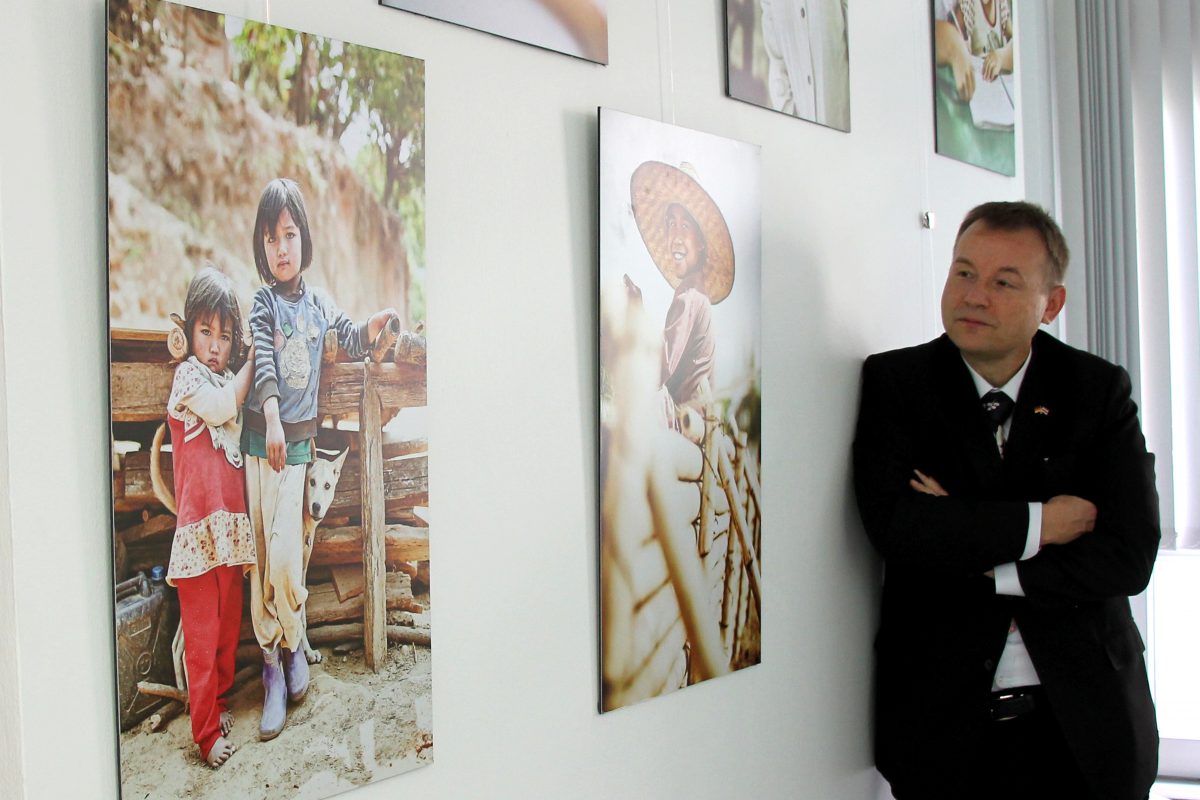H.E. Mr Georg Schmidt – The German Ambassador to Thailand
Expat Life sat down with the German Ambassador to Thailand H.E. Mr Georg Schmidt who arrived in Thailand in October 2018. He instantly became a success with his staff and colleagues at the Embassy, countryfolk and other international residents due to his approachable and amiable character. He is very easy to talk to and speaks perfect English, Chinese and is already competent in Thai. He obviously has a skill with languages.
Did you arrive to Thailand from home, or were you posted somewhere else before?
He arrived from the head offices in Berlin and had previously been the German Foreign Ministry’s Africa Director in Berlin from 2014 to 2018. He had previous postings in Asia in Tokyo in Japan and Columbo in Sri Lanka. He told us that he had studied in Hong Kong in the 80s and has a degree from Hong Kong University. So for him he said it was good to be back to SE Asia.
Where are you born and brought up?
I was born in Freiburg, very close to the German border with France and Switzerland. Freiburg im Breisgau, a vibrant university city in southwest Germany’s Black Forest, is known for its temperate climate and reconstructed medieval old town, crisscrossed by picturesque brooks (bächle). In the surrounding highlands, hiking destination Schlossberg hill is linked to Freiburg by a funicular. With a dramatic 116m spire, the Gothic Cathedral Freiburg Minster towers over the central square Münsterplatz. Freiburg is famous for its ecological policies.
At which age did you decide you wanted to become a diplomat?
I decided to go for the entrance examination of the Foreign Ministry in 1994, at the age of 31. So becoming a diplomat has not been a long time dream. However, I have not regretted working in the Foreign Service for a single day.
Do you have more diplomat’s in your family?
No, none at all. I am the first to my knowledge.

How do you look at Thailand today, have you had many obstacles in your way since you arrived?
Thailand has achieved so much since my first visit as a tourist in the 80s. The country has changed so much. The development is very impressive. Yet the distribution of wealth in the country is far from even. This would create tensions in any society. Negotiating compromises and addressing the needs of the people is a complex issue requiring open discussions. My impression is that Thai people want their voices to be heard. In addition, the internet has changed things. It is much easier to get information – but it might be more difficult to assess facts from fiction.
On a personal level, having a strong team of Germans and Thais in the office was and is indispensable to try and understand my new host country. All our German Embassies around the world rely on strong local staff. I am
Do you see any similarities between your country and Thailand? Thailand and Germany both have a strong manufacturing base. We like to produce things. Therefore, it will be very important to adapt to a much more energy efficient and ecologically sound sustainable production and the challenges of digitalisation and what we call in German “Industrie 4.0”. This is one focus of our Embassy.
If I look back to the history of our countries, there has been a mutual fascination. Reading the accounts of visitors in Germany and Thailand in the 19th Century it is easy to sense the curiosity, respect and admiration. That applies as much for the similarities as for the differences. Maybe people go to another country to find what they are missing at their home. Oh and both Thais and Germans have a love for the beautiful game – football!

Do you have children what age and where do they go to school?
We have one daughter who is attending university abroad.
How do you look upon your work here? How does an average day look like?
As an Ambassador I have to be a bridge between Thailand and Germany. So we always have to have one foot in Germany and one foot in Thailand. At the Embassy we are doing consular work, promoting business between our countries, fostering student and academic exchanges and maintaining close contacts with all branches of the Thai government. I think it is very important to be as accessible as possible and meet as many people as possible to get a better understanding of the complexity of our bilateral relations which extend beyond government to government contacts. The days start early with discussing the organisational aspects of the week ahead. After that, every day is different: it could be lobbying on behalf of German companies, promoting green business, maintaining contact with political par-ties, dealing with human rights issues or our established police cooperation. Our Embassy in Thailand has a large con-sular section assisting Germans living in the country and tourist visitors. Sadly, more or less every day, one German citizen dies in Thailand. We are there to help the families and assist with all of the necessary arrangements. And of course, the consular section is very busy with all the Visa Applications for Germany. And do not forget: Administering an Embassy with almost one hundred staff also has its daily challenges.
Please follow me on Twitter @GermanAmbTHA and you can get an impression of an Ambassadors’ daily activities.
As every Ambassador, I assume you have some goals you really would like to reach/fulfil before you leave Thailand?
I would like to continue and strengthen our contacts in the field of vocational education and training. Germany has a lot to offer in this field and we are very ready to share our experiences with our hosts in Thailand. There is one other very important area of cooperation: All aspects of environmental protection and sustainability. I think it is becoming very clear, how damaging climate change is. So we do need to drastically increase our efforts for a more sustainable way of life. Renewable energy, electric mobility and energy efficient production are just a few examples. Germany is a world leader in technology. But it is not the technology alone, it is the government standards and the consumption patterns of every individual that matter. I hope we can make a difference in this field. Climate change is the real threat to the wellbeing and survival not just of mankind, but so many other species on our wonderful planet. Climate change cannot be fought with tanks and guns.
Have you been travelling around in Thailand?
Not as much as I would have liked to yet. My first official visit led me to Isaan. I felt it was important to learn more about Thailand’s most populous and culturally so important region of the country. Visits in the vicinity of Bangkok followed. But I want to see as much as possible during my stay here. It would be all too easy to be absorbed by Bangkok – but Thailand is much more than its fascinating capital.

Until now, what is your favourite destination in Thailand? After a busy week, it is coming home and spending time with my wife.
When you have a day off, what do you prefer to do? Having any special hobby?
I enjoy exploring Bangkok on foot or by e-scooter. There are so many small things to be discovered. In addition, I am happy to fully enjoy Thailand’s tropical fruits.
How many of your countryfolk are living in Thailand? When and why did Thailand become a desirable destination for your people?
We know of roughly 35,000 German residents in Thailand. But since there is no obligation to register with the

If you could choose your next destination, where would you like to go?
I have just arrived so I do not want to think beyond exploring Thailand and the region. There is too much to absorb here. For me it is a pleasure and a great privilege to be posted here in Thailand and I look forward to learning more about the country and its people.
Any memory from Thailand that you’d like to tell us, an awkward situation, a real fun moment etc?
When I took my e-scooter into the BTS to go to the Thailand Cultural Centre I heard a voice
Do you regularly meet up with your community?
The community is too large to meet up all the people. However, there are many opportunities to meet a lot of my compatriots. The “Fest der Deutschen” is one example. It is a large gathering with music and dance whose proceeds go to the “Deutscher Hilfsverein” – an association that helps Germans in need. We are also lucky to have the Goethe Institut very near
Which is the most important task you want to reach/fulfil before you end your time in Thailand? I talked about my aspirations earlier. But my hope for Thailand is to see



